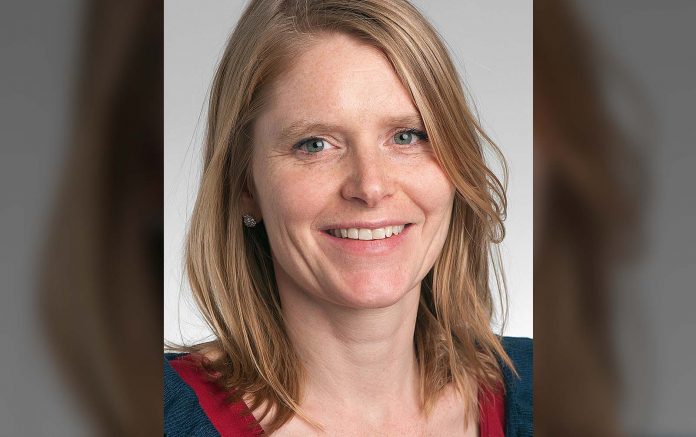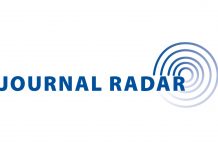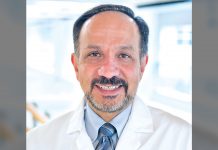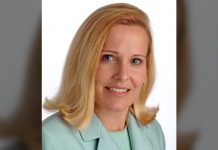Posted: October 2017
The European Society for Medical Oncology (ESMO) has elected an emerging leader in thoracic oncology—and an IASLC board member—to lead the organization in 2020–2021. ESMO President- Elect Solange Peters, MD, PhD, is head of the medical oncology service and chair of thoracic oncology in the Oncology Department at the Centre Hospitalier Universitaire Vaudois in Lausanne, Switzerland.
Dr. Peters is very active in ESMO and serves on its executive board and chairs several committees, including the organization’s Women for Oncology Committee. She is also a member of the American Association for Cancer Research and European Organisation for Research and Treatment of Cancer. In addition to serving on IASLC’s board, Dr. Peters is deputy editor of IASLC’s Journal of Thoracic Oncology.
Dr. Peters spoke with IASLC Lung Cancer News about key issues in oncology.
IASLC: Where is oncology going as a field? What are the major issues and priorities?
Dr. Peters:
• Issue 1: Bridging cancer research, diagnosis, and treatment for integrated cancer care
As ESMO becomes a global society, it needs to foster a greater integration of professionals from different geographic, socio-economic, and ethnic backgrounds, to create a vibrant community that considers relevant issues from the global perspective. ESMO is committed to promoting an environment where equal access to information and optimal cancer treatment are priorities, at a time when these considerations might be weakened in several specific political and economic contexts.
• Issue 2: Specialized education to support oncologists and help them keep up in such a quickly evolving field
I believe that ESMO should prioritize adaptation of its activities to regional needs, for example, co-developing preceptorships with ESMO members in lower-resource countries and adapting oncology curricula and guidelines to local prevailing conditions. I will support the expansion of ESMO’s educational meetings to satisfy the needs of those regions that will most benefit from ESMO’s resources and know-how. Such an expansion of activities will be critically assessed, to positively impact the actual delivery of cancer care without interfering with local organizations and culture.
Furthermore, ESMO has started to integrate basic researchers into its faculty, meetings, and educational activities. These efforts could be gradually reinforced, and this would also be a stimulus to promote and support academic research as well as strengthen information in the basic sciences, something which is greatly needed for the modern management of cancer patients.
• Issue 3: Sustainable cancer care and equal access to quality treatment
One of the most important topics to be addressed in the next 10 years is the availability of essential cancer medicines for patients, in Europe and globally. There is growing evidence of inequalities and complex barriers to access for many innovations in cancer therapy in Europe, as healthcare systems are increasingly challenging their cost, with out-of-pocket payments for cancer care growing exponentially as a result. ESMO should act as an advocate in this field, helping the profession to guide health authorities. ESMO can—impartially—provide the scientific content and specific expertise to health authorities and governmental agencies, pharmaceutical companies, patient advocates, national collaborative groups, insurance companies, and cancer caregivers across disciplines to improve or secure access to optimal cancer care. However, ESMO must first describe and report on the incredible variety and heterogeneity of public policies and healthcare models across Europe, to understand the issues encountered by each nation or region, and then establish models that can be adapted to different local conditions.
Beyond specific geographical disparities, the global sustainability of healthcare systems is threatened by the emergence of extremely expensive treatments. Costs have to be analyzed at an international level. ESMO is in a unique position to be able to describe how funding and costrelated negotiations are managed across European countries, and to develop optimal and acceptable models to be proposed or deployed at national and regional levels.
The necessary starting point for the measurement of value of any innovation is to determine whether it offers real benefits to patients. It has become clear that we can no longer afford to accept novel therapies with marginal benefits carrying disproportionate price tags. The ESMO Magnitude of Clinical Benefit Scale (ESMO-MCBS) is intended to help decision-makers prioritize paradigmchanging new drugs for reimbursement. ESMO is one of several organizations initiating requests for more transparency from pharmaceutical companies regarding pricing, and helping to facilitate fair pricing.
IASLC: How will the insights and challenges you’ve experienced as a leader in thoracic oncology influence your leadership of ESMO?
Dr. Peters: As our understanding of the complex molecular biology underlying different cancers advances—with lung cancer being one of the first diseases facing such challenges—the potential for personalized therapies continues to grow, but so do the costs of each patient’s cancer treatment. More and more government authorities must seek a balance between treatment costs and clinical benefit when assessing reimbursement policies; as a result, doctors face increasingly tough decisions.
To offer the most appropriate treatment to cancer patients, oncologists and other decision-makers need to be supported with the highest standard of guidance. And this holds particularly true as doctors face the very complex aspects of personalized oncology, tumor molecular characterization, and immunogenicity prediction—aspects that we are currently systematically discussing in the field of thoracic tumors.
Thoracic malignancies have taught me that we need to provide excellent, up-to-date, and very clear information to allow oncology specialists and stakeholders to make informed decisions and to offer the highest-quality treatments to cancer patients, regardless of their specific environment.
IASLC: What are your thoughts on research involving industry and academia?
Dr. Peters: We need to support and promote independent academic research. Commercially sponsored clinical trials only assess the viability of compounds that are chosen by a commercial entity that funds the entire process. By their design and focus, these trials need to fufill commercial interests and market expectations, which do not always coincide with patients’ needs. As soon as or even before novel treatments and compounds obtain formal market authorization, academia should be able to take both existing and new medicines and conduct further research to optimize their use, develop new combinations, and focus on patients and their needs.
ESMO and other organizations established the CAREFOR initiative to improve academic clinical trials. This should be expanded to other collaborative national and international research organizations; ESMO should serve as a platform for closer interactions and evaluation of new models for clinical research. This will ensure that ESMO will continue to disseminate the best science as well as identify and promote key opinion leaders in multidisciplinary cancer care. ✦











